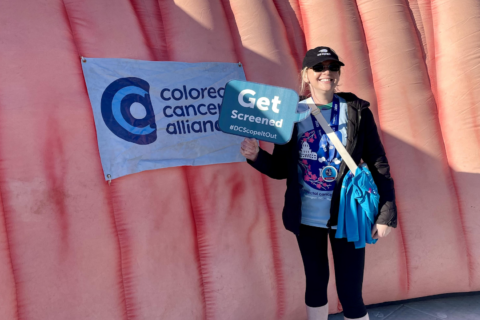The death of a loved one can spark a torrent of emotions, amid shock and sadness — and often a flurry of money-making activities by “body brokers.”
The National Funeral Directors Association is lobbying to have Congress establish a law that would regulate the activities of people or companies that target those who may want to donate their loved one’s body to science, or may not be able to afford the expense of a funeral.
Jon Milton, director of Laurel Hill Funeral Home and Memorial Park in Spotsylvania County, Virginia, and other funeral directors said demand for human cadavers for use in medical research is higher than the number of families who would reach out to have their loved one’s remains be donated for medical research.
“Body brokers market themselves as working on behalf of research facilities,” said Milton. “They’re the ones who are approaching the families, either through hospice, or funeral homes, or in the hospital, to have families donate their (loved one’s) body to these brokers.”
A broker can get up to $10,000 for a body, according to the NFDA. However, Milton said the body is often dismembered and sold in parts.
“Once a family signs their next of kin right over to the brokers, the person really becomes a commodity at that point,” Milton said. “The body brokers are then able to use that body for whatever is going to create the greatest amount of income, unless the next of kin is educated on what they can opt in and out of.”
Milton said he recently spoke with a family that wanted their loved one’s remains to be studied for Alzheimer’s disease.
“They didn’t understand that most likely the head of their loved one would probably be separated from the rest of the body, and that the remainder of the body would be used as inventory for the body broker,” he said.
While brokering the body parts isn’t illegal, Milton said it’s not what families have in mind when making the difficult decision.
Milton believes most families contemplating donating a body for medical research “anticipate that the body will be kept together and that the cremains are going to be the entirety of the body of their loved ones.”
He said Congress is soon expected to introduce the Consensual Donation and Research Integrity Act of 2023.
Under the bill, a federal agency would register, track, and regulate the activities of facilities that receive donated bodies for education and research.
Currently, only five states, including Virginia, have regulations for the industry. The Virginia State Anatomical Program is the only agency in the Commonwealth authorized to receive donated bodies. According to the agency, it provides them to six Virginia medical schools, 17 colleges and universities, five community colleges and two biomechanical research facilities.
“That’s what we’re really striving for,” said Milton. “To create a standard across the industry to ensure that these donated individuals are continued to be treated with dignity.”








